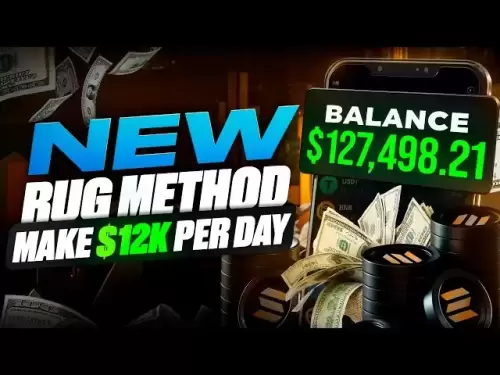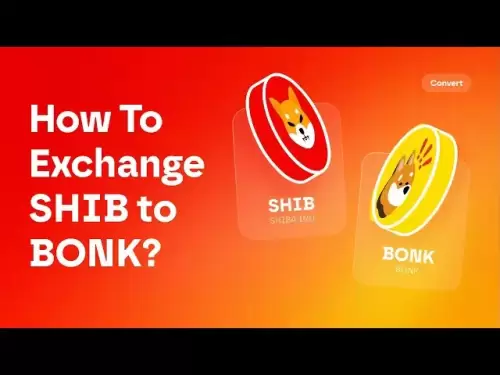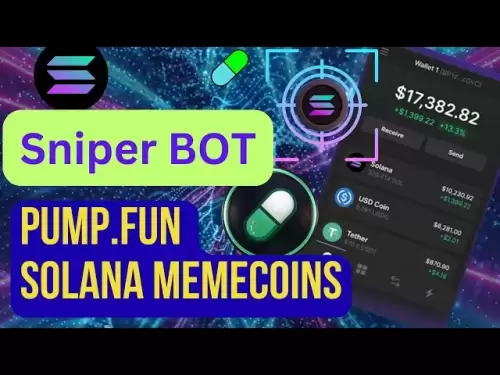-
 Bitcoin
Bitcoin $112400
-1.07% -
 Ethereum
Ethereum $3409
-3.27% -
 XRP
XRP $2.784
-6.60% -
 Tether USDt
Tether USDt $0.9997
-0.03% -
 BNB
BNB $739.3
-2.09% -
 Solana
Solana $158.0
-2.90% -
 USDC
USDC $0.9998
-0.02% -
 TRON
TRON $0.3213
-0.94% -
 Dogecoin
Dogecoin $0.1929
-5.01% -
 Cardano
Cardano $0.6974
-2.82% -
 Hyperliquid
Hyperliquid $36.69
-2.31% -
 Sui
Sui $3.327
-4.80% -
 Stellar
Stellar $0.3672
-5.18% -
 Chainlink
Chainlink $15.65
-3.07% -
 Bitcoin Cash
Bitcoin Cash $525.0
-1.68% -
 Hedera
Hedera $0.2291
-6.00% -
 Avalanche
Avalanche $20.91
-2.96% -
 Ethena USDe
Ethena USDe $1.000
0.00% -
 Toncoin
Toncoin $3.520
-1.12% -
 UNUS SED LEO
UNUS SED LEO $8.968
0.14% -
 Litecoin
Litecoin $105.7
0.26% -
 Shiba Inu
Shiba Inu $0.00001181
-1.79% -
 Polkadot
Polkadot $3.492
-2.08% -
 Uniswap
Uniswap $8.800
-3.10% -
 Dai
Dai $0.9999
-0.01% -
 Monero
Monero $289.9
-3.17% -
 Bitget Token
Bitget Token $4.243
-1.27% -
 Pepe
Pepe $0.00001006
-3.67% -
 Cronos
Cronos $0.1248
-5.68% -
 Aave
Aave $249.7
-2.50%
How to choose an NFT trading platform? Which is more important, handling fees or liquidity?
When choosing an NFT trading platform, balance handling fees and liquidity based on your trading strategy; frequent traders may prioritize low fees, while long-term holders focus on liquidity.
May 15, 2025 at 05:07 pm
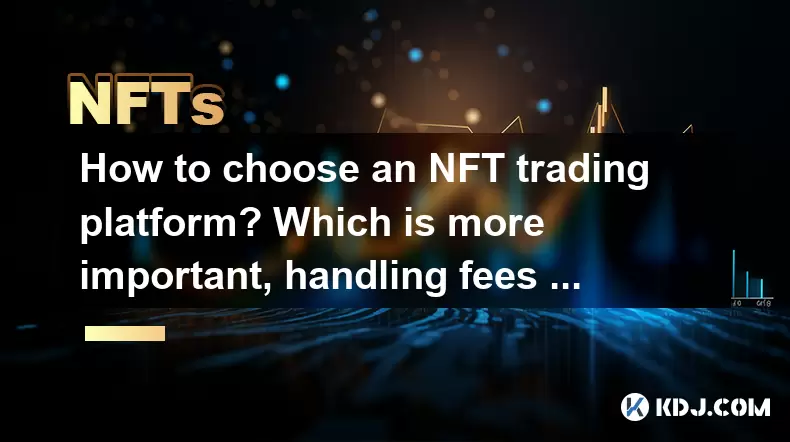
Choosing the right NFT trading platform is crucial for anyone looking to engage in the world of non-fungible tokens. With a plethora of options available, it's important to consider several factors to ensure you select a platform that aligns with your trading needs. Among these factors, handling fees and liquidity stand out as critical considerations. This article will guide you through the process of choosing an NFT trading platform and help you understand which of these two aspects—handling fees or liquidity—should be given more importance.
Understanding Handling Fees in NFT Trading
Handling fees, also known as transaction fees, are the costs associated with buying or selling NFTs on a platform. These fees can vary significantly from one platform to another and can impact your overall profitability.
- Types of Fees: Most platforms charge a percentage of the sale price as a fee. For example, a platform might charge a 2.5% fee on every transaction. Some platforms also have additional fees, such as listing fees or withdrawal fees.
- Impact on Profitability: If you are a frequent trader, high fees can eat into your profits. For instance, if you are flipping NFTs for small gains, a high fee could make your trades unprofitable.
- Comparing Fees: To choose the right platform, you need to compare the fee structures of different platforms. Websites like DappRadar or CoinGecko can provide detailed information on the fees charged by various NFT marketplaces.
The Importance of Liquidity in NFT Trading
Liquidity refers to how easily you can buy or sell an NFT on a platform. High liquidity means there are many buyers and sellers, making it easier to execute trades quickly and at favorable prices.
- Market Depth: Platforms with high liquidity often have a deep order book, meaning there are many orders at different price levels. This can help you get better prices when buying or selling.
- Volatility: High liquidity can also reduce price volatility. In a liquid market, large trades are less likely to cause significant price swings.
- Assessing Liquidity: You can assess the liquidity of a platform by looking at the trading volume and the number of active users. Platforms like OpenSea and Rarible are known for their high liquidity.
Balancing Handling Fees and Liquidity
When choosing an NFT trading platform, you need to balance the importance of handling fees and liquidity. Both factors are crucial, but their relative importance can depend on your trading strategy.
- For Frequent Traders: If you are a frequent trader, low handling fees might be more important. High fees can significantly impact your profitability, especially if you are making many small trades.
- For Long-Term Holders: If you are a long-term holder, liquidity might be more important. You want to be able to sell your NFTs quickly and at a good price when you decide to exit your position.
- Hybrid Approach: Some traders might prefer a hybrid approach, choosing a platform that offers a good balance of low fees and high liquidity. This can be a good strategy for those who engage in both short-term and long-term trading.
Other Factors to Consider When Choosing an NFT Trading Platform
While handling fees and liquidity are important, they are not the only factors to consider when choosing an NFT trading platform. Here are some other aspects to keep in mind:
- Security: Ensure the platform has robust security measures in place to protect your assets. Look for platforms that use multi-signature wallets and have a good track record of security.
- User Experience: A user-friendly interface can make a big difference in your trading experience. Look for platforms that are easy to navigate and offer good customer support.
- Supported Blockchains: Different platforms support different blockchains. Make sure the platform you choose supports the blockchain on which your NFTs are based.
- Community and Reputation: Platforms with a strong community and good reputation are often more reliable. Look for platforms that are well-regarded in the NFT community.
How to Evaluate and Compare NFT Trading Platforms
Evaluating and comparing NFT trading platforms can be a daunting task, but it can be made easier by following a systematic approach. Here are some steps to help you make an informed decision:
- Research: Start by researching the most popular NFT trading platforms. Websites like DappRadar, CoinGecko, and CryptoSlate can provide valuable information on different platforms.
- Compare Fees: Use comparison tools to look at the fee structures of different platforms. Pay attention to the percentage fees, as well as any additional fees like listing or withdrawal fees.
- Assess Liquidity: Look at the trading volume and the number of active users on each platform. High trading volume and a large user base are indicators of good liquidity.
- Read Reviews: Read reviews from other users to get a sense of the platform's reliability and user experience. Look for reviews on platforms like Trustpilot or Reddit.
- Test the Platform: If possible, try out the platform with a small transaction to see how it works. Pay attention to the user interface, the speed of transactions, and the overall experience.
Handling Fees vs. Liquidity: Which is More Important?
The question of whether handling fees or liquidity is more important depends on your trading strategy and goals. Here are some considerations to help you decide:
- If You Prioritize Profitability: If your main goal is to maximize your profits, you might want to focus on platforms with low handling fees. High fees can eat into your profits, especially if you are making many small trades.
- If You Prioritize Speed and Flexibility: If you need to buy or sell NFTs quickly, liquidity should be your top priority. High liquidity ensures that you can execute trades quickly and at favorable prices.
- If You Have a Diverse Trading Strategy: If you engage in both short-term and long-term trading, you might want to find a platform that offers a good balance of low fees and high liquidity. This can help you optimize your trading strategy.
Frequently Asked Questions
Q: Can I use multiple NFT trading platforms to optimize my trading strategy?
A: Yes, using multiple platforms can be a good strategy. You can use one platform for its low fees and another for its high liquidity, depending on your specific needs at the time. Just make sure to keep track of your assets across different platforms.
Q: Are there any platforms that offer zero handling fees?
A: Some platforms offer zero handling fees for certain types of transactions or for a limited time. However, these platforms often make up for it with other fees or lower liquidity. Always read the fine print to understand the full fee structure.
Q: How can I improve the liquidity of my NFTs if I'm selling on a less liquid platform?
A: To improve the liquidity of your NFTs on a less liquid platform, you can try the following strategies: set a competitive price, use social media to promote your NFTs, and consider listing your NFTs on multiple platforms to increase visibility.
Q: What should I do if I encounter a security issue on an NFT trading platform?
A: If you encounter a security issue, immediately contact the platform's customer support. Also, consider moving your assets to a secure wallet and report the issue to the community to help others avoid similar problems.
Disclaimer:info@kdj.com
The information provided is not trading advice. kdj.com does not assume any responsibility for any investments made based on the information provided in this article. Cryptocurrencies are highly volatile and it is highly recommended that you invest with caution after thorough research!
If you believe that the content used on this website infringes your copyright, please contact us immediately (info@kdj.com) and we will delete it promptly.
- Grayscale, Altcoin Trust, and Mid-Cap Mania: What's the Deal?
- 2025-08-03 08:50:16
- XRP, ADA, and the Altcoin Evolution: What's Hot and What's Next
- 2025-08-03 08:30:16
- HBAR Price Check: Will Monthly Gains Hold at This Resistance Level?
- 2025-08-03 08:30:16
- Bitcoin, Cryptos, and Retirees: A New Era of Investment?
- 2025-08-03 08:50:16
- BlockDAG's Presale Power & Active Miners: A New York Minute on Crypto's Hottest Trend
- 2025-08-03 08:55:25
- BlockDAG Presale Heats Up: SUBBD Trails as Innovation Meets Execution
- 2025-08-03 09:00:16
Related knowledge
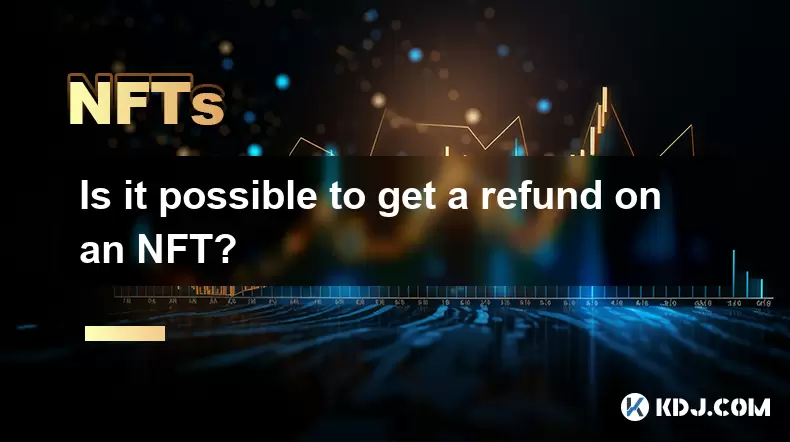
Is it possible to get a refund on an NFT?
Jul 21,2025 at 08:35pm
Understanding NFT Transactions and RefundsWhen you purchase an NFT (Non-Fungible Token), the transaction is typically recorded on a blockchain, making...
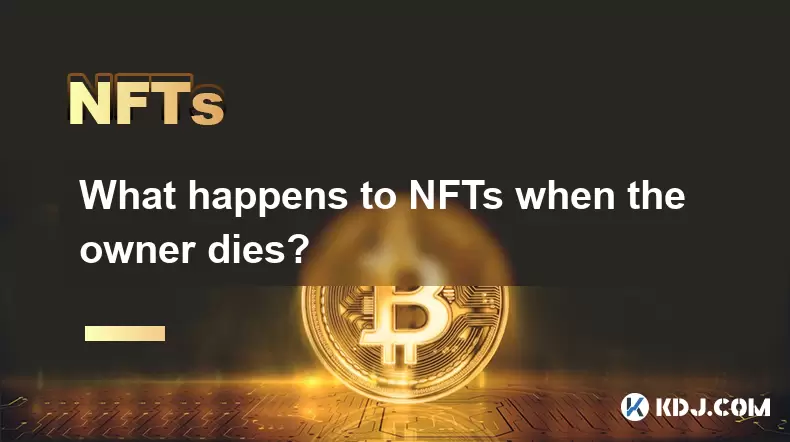
What happens to NFTs when the owner dies?
Jul 22,2025 at 02:43pm
Legal Ownership and Digital AssetsWhen an individual owns NFTs, the question of what happens to these assets upon their death is a pressing one. NFTs ...
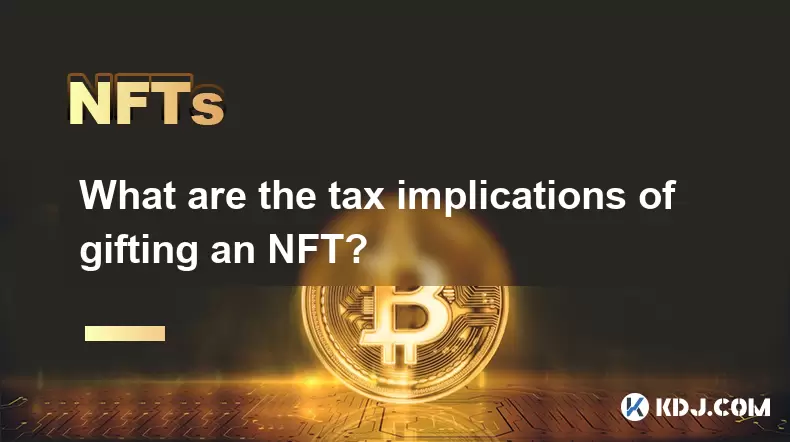
What are the tax implications of gifting an NFT?
Jul 19,2025 at 04:21am
Understanding the Basics of NFT GiftingGifting a Non-Fungible Token (NFT) involves transferring ownership from one individual to another without recei...
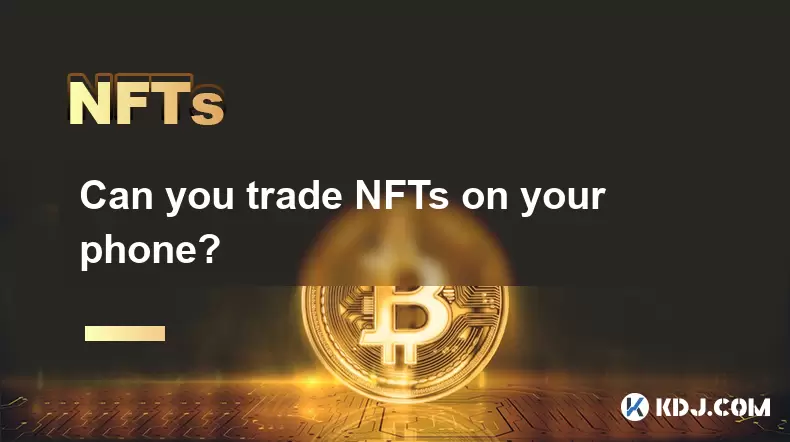
Can you trade NFTs on your phone?
Jul 18,2025 at 04:29am
Trading NFTs on Mobile DevicesYes, you can trade NFTs on your phone, and the process has become increasingly streamlined thanks to a variety of mobile...
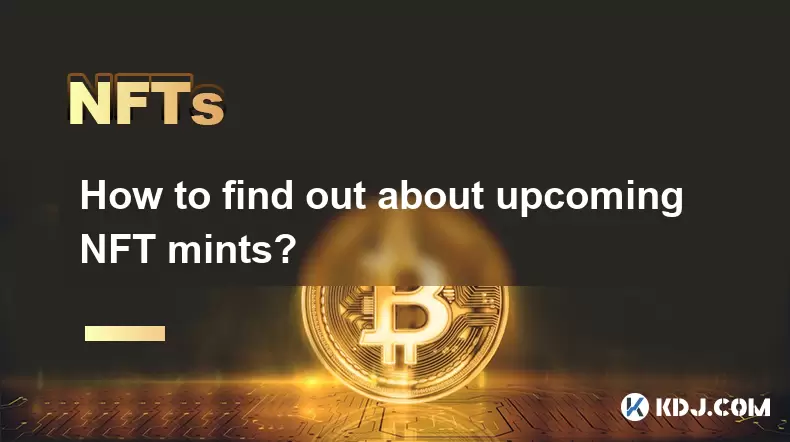
How to find out about upcoming NFT mints?
Jul 18,2025 at 11:50am
Exploring NFT Minting OpportunitiesUnderstanding the landscape of upcoming NFT mints is crucial for collectors, investors, and creators who wish to st...
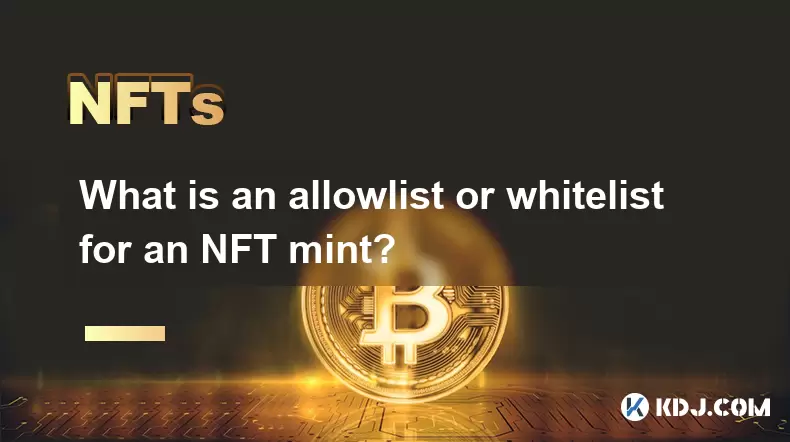
What is an allowlist or whitelist for an NFT mint?
Jul 20,2025 at 07:14pm
Understanding the Concept of an Allowlist for NFT MintingAn allowlist, also commonly referred to as a whitelist, is a mechanism used in the NFT mintin...

Is it possible to get a refund on an NFT?
Jul 21,2025 at 08:35pm
Understanding NFT Transactions and RefundsWhen you purchase an NFT (Non-Fungible Token), the transaction is typically recorded on a blockchain, making...

What happens to NFTs when the owner dies?
Jul 22,2025 at 02:43pm
Legal Ownership and Digital AssetsWhen an individual owns NFTs, the question of what happens to these assets upon their death is a pressing one. NFTs ...

What are the tax implications of gifting an NFT?
Jul 19,2025 at 04:21am
Understanding the Basics of NFT GiftingGifting a Non-Fungible Token (NFT) involves transferring ownership from one individual to another without recei...

Can you trade NFTs on your phone?
Jul 18,2025 at 04:29am
Trading NFTs on Mobile DevicesYes, you can trade NFTs on your phone, and the process has become increasingly streamlined thanks to a variety of mobile...

How to find out about upcoming NFT mints?
Jul 18,2025 at 11:50am
Exploring NFT Minting OpportunitiesUnderstanding the landscape of upcoming NFT mints is crucial for collectors, investors, and creators who wish to st...

What is an allowlist or whitelist for an NFT mint?
Jul 20,2025 at 07:14pm
Understanding the Concept of an Allowlist for NFT MintingAn allowlist, also commonly referred to as a whitelist, is a mechanism used in the NFT mintin...
See all articles
























